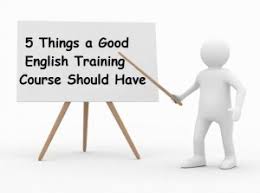The two most important things that the teaching method should focus on are: The logic of making sentences(LOGIC) and the way English is used by different types of people in real life situations (USAGE).
For learning the logic of EC, rules of making sentences in English communication must be taught and for learning the usage, the learners must get the right exposure. This is what make an English communication course really worth doing.
This means that teaching/learning grammar is not the first (or the only) step. In fact the first step is learning the rules of making sentences and start thinking in English as soon as possible.
 Grammar and literature should be made optional subjects and they should be meant only for those who would like to become teachers/researchers in English language.
Grammar and literature should be made optional subjects and they should be meant only for those who would like to become teachers/researchers in English language.
English communication is actually a skill and it can be imparted only by those who practice and refine it on a regular basis by getting new awareness and also engaging with that awareness/sharing it/applying it for creating social, intellectual, economic, cultural, emotional, creative, ecological, artistic and many other diverse kinds of wealth forms.
The practicing learners having the right temperament can easily become the best teachers by becoming aware of the tools/techniques/resources used by themselves first to get the best results in their field of work where English Communication has a vital role to play.
Therefore in an ideal learning environment the teaching is more inspirational than instructional. The learners also participate in the design, delivery and development process of knowledge creation thus feeling inspired and motivated to excel like the person(s) imparting that particular skill.
TO BE CONTINUED...
